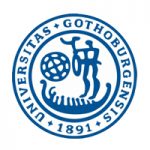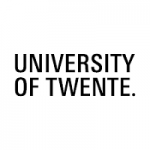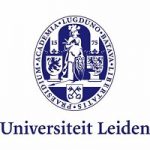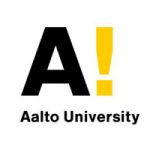项目介绍
The University of Gothenburg tackles society’s challenges with diverse knowledge. 56 000 students and 6 600 employees make the university a large and inspiring place to work and study. Strong research and attractive study programmes attract researchers and students from around the world. With new knowledge and new perspectives, the University contributes to a better future.
General information about being a doctoral student at the University of Gothenburg can be found on the university’s doctoral student pages.
Sociology focuses on the social interaction between people, as well as societal patterns and structures.
The Department of Sociology and Work Science has about 120 employed, teachers, researchers, PhD-students and administrative staff. The Department carries out research, education and collaboration in a number of areas. There is research in areas like labor market, working life, social deviance, digitalization, emotions, gender, migration, environmental issues, social movements, governance and organization, science and technology as well as welfare. Courses are offered in a range of fields such as sociology, work science, human resource management, criminology and social psychology. The Department also has extensive commitment to several of the University’s educational programs, particularly in teacher education. Collaboration and development projects are conducted both in research and education with partners in the private and public sector for example the Centre for Global Human Resource Management (CGHRM).
Duties
The Department of Sociology and Work Science is seeking a doctoral student to work on the existing project: Is Justice Blind? A Comparison Between Voluntariness-Based and Coercion-Based Rape Legislation. The project aims to systematically investigate legal bias in rape judgments before and after the introduction of the consent law in 2018. The project is divided into three sub-studies aimed at: 1) examining the effect of background variables for both the defendant and the plaintiff, as well as their interaction effects on the assessment of rape cases in the District Court and the Court of Appeal, including the proportion of changed decisions in the Court of Appeal before and after the introduction of the new law; 2) analyzing the formulations in judgments that justify legal decisions, especially when they are changed by the Court of Appeal, before and after the new law; 3) analyzing the connection between 1) and 2) and its consequences for legal practice in collaboration with legal professionals. The doctoral student has the opportunity to develop their own research questions within the framework of the project based on the collected material.
The project involves the collection and analysis of large datasets, including judgments, which means that the doctoral student will be in contact with relevant authorities (district courts, courts of appeal) and will be responsible for building a comprehensive database. The work will involve statistical analysis and quantitative content analysis, mainly using the Python programming language. The doctoral student will work together with supervisors and project members who have these competencies. The project also requires very good knowledge of the Swedish language as it involves the collection, coding, and analysis of Swedish-language legal documents and collaboration with legal authorities.
The aim of the doctoral studentship is for the doctoral student to acquire the knowledge and skills necessary to be able to conduct research autonomously within sociology and to contribute to the development of knowledge within the discipline through the production of a scholarly thesis. Another aim for the doctoral student is to develop an ability to apply the acquired knowledge and skills within post-degree research or other professional work.
Doctoral studies comprises four years of full-time study, and leads to a doctoral degree.
As part of your employment as a doctoral student, you may have departmental duties corresponding to up to 20 % of full-time employment, distributed throughout your study period, and result in a corresponding extension of the studies. Departmental duties usually consist of teaching at first- and second-cycle levels, but may also include research and administration.
Eligibility
Doctoral education requires general eligibility and, where appropriate, specific eligibility as set out in the general syllabus for the subject.
The general eligibility requirements for doctoral studies are:
- having completed a degree at second-cycle level, or
- the fulfilment of course requirements totalling at least 240 credits, of which at least 60 credits must be at second-cycle level, or
- the acquisition of equivalent knowledge in some other way, either in Sweden or abroad.
Specific entry requirements for this subject, according to the general syllabus, are a degree at the advance level (second-cycle) in sociology or largely equivalent knowledge, acquired in Sweden or abroad, vill also be considered to meet specific entry requirements.
Assessment criteria
The selection of applicants who meet the basic and specific eligibility requirements will be based on the ability to assimilate the doctoral studies.
It is highly advantageous if the applicant has experience in managing and analyzing large datasets in databases. This also includes knowledge and practical experience of statistical methods, as well as automated text analysis using Large Language Models (LLM) and Natural Language Processing (NLP). Experience in using the Python programming language is particularly advantageous.
To be considered, the application must include the following:
-Essays, independent works (thesis), and any scientific publications, with a maximum of two attached texts. These will be assessed based on the following quality criteria: scientific problem and purpose, connection to previous research, choice of theoretical perspectives, method selection and practical implementation, theory integration in analysis, interpretation and conclusions, as well as accuracy and linguistic presentation. For co-authored texts, the applicant must describe their contribution. It is advantageous if the works/publications are methodologically linked to the project’s research focus.
-A project plan of a maximum of 2000 words (excluding the reference list). The applicant should describe their research interest and focus for the intended dissertation work within the framework of the overall research project. The plan should discuss previous research and relevant theories, and outline how the research questions can be answered using the methods required in the overall research project. The project plan will be assessed based on the following quality criteria: scientific relevance, demonstrated familiarity with the methods specified for the research project, previous and current research, and feasibility within the framework of doctoral education. The project plan should apply the methods and use the materials that align with the overall research project.
Since doctoral studies in sociology are demanding, a high degree of motivation and the ability to work both independently and in collaboration with the project group within given time frames are required. Good cooperation and communication skills are a must.
The research project requires very good knowledge of Swedish and good knowledge of English, both spoken and written (equivalent to CEFR B2).
Recommendation letters are not considered, but references to previous supervisors or employers can be advantageously included in the application.
Admission and employment
Once you have been admitted to doctoral studies, you will be employed as a doctoral student at the University of Gothenburg.
The provisions for employment as a doctoral student can be found in ordinance SFS 1993:100.
Initial employment as a doctoral student may apply for a maximum of one year, and may be renewed by a maximum of two years at a time.
A doctoral student may be employed as a doctoral student for a maximum of eight years, but the total period of employment may not be longer than the equivalent of full-time education at doctoral level for four years.
The University applies a local agreement on salaries for doctoral students.
Please note, doctoral studies at the department of sociology and work science require physical presence to conduct the studies. If the admitted applicant needs a residence permit for higher education to pursue studies in Sweden, the department of sociology and work science has the right to revoke the admission decision if the applicant cannot present a valid residence permit no later than at the start of the studies.
Contact information
For information on the education program/employment, please contact Bertil Rolansson coordinator of third-cycle program, bertil.rolandsson@gu.se
For questions on the research project, please contact PI professor Åsa Wettergrem asa.wettergren@gu.se
For information on the application procedure/admittance process, please contact human resource officer Anna Karin Wiberg, anna-karin.wiberg@gu.se, +46 31-786 3156
Unions
Union representatives at the University of Gothenburg can be found here:
https://www.gu.se/om-universitetet/jobba-hos-oss/hjalp-for-sokande
Application
You can apply to be admitted to doctoral education via the University of Gothenburg’s recruitment portal.
It is your responsibility to ensure that the application is complete as per this notice, and that the University receives it by the final application deadline.
Applications must be received by: May 19, 2025
Information for International Applicants
Choosing a career in a foreign country is a big step. Thus, to give you a general idea of what we and Gothenburg have to offer in terms of benefits and life in general for you and your family/spouse/partner please visit:
https://www.gu.se/en/about-the-university/welcome-services
https://www.movetogothenburg.com/
联系方式
电话: +46 31-786 00 00相关项目推荐
KD博士实时收录全球顶尖院校的博士项目,总有一个项目等着你!






